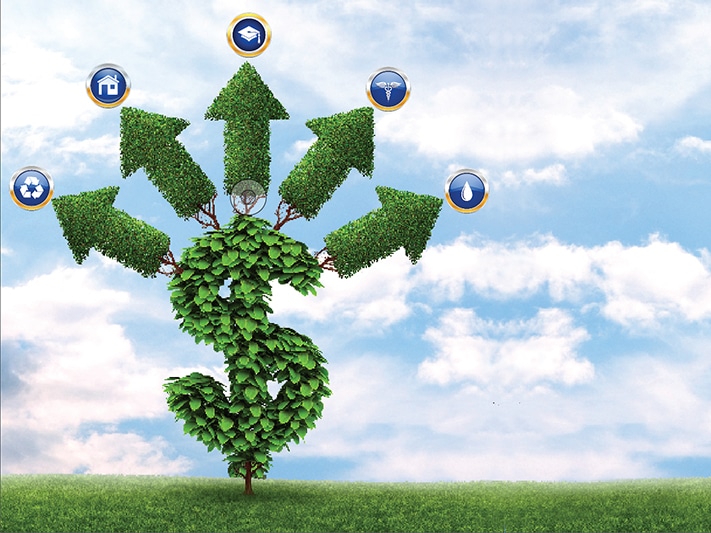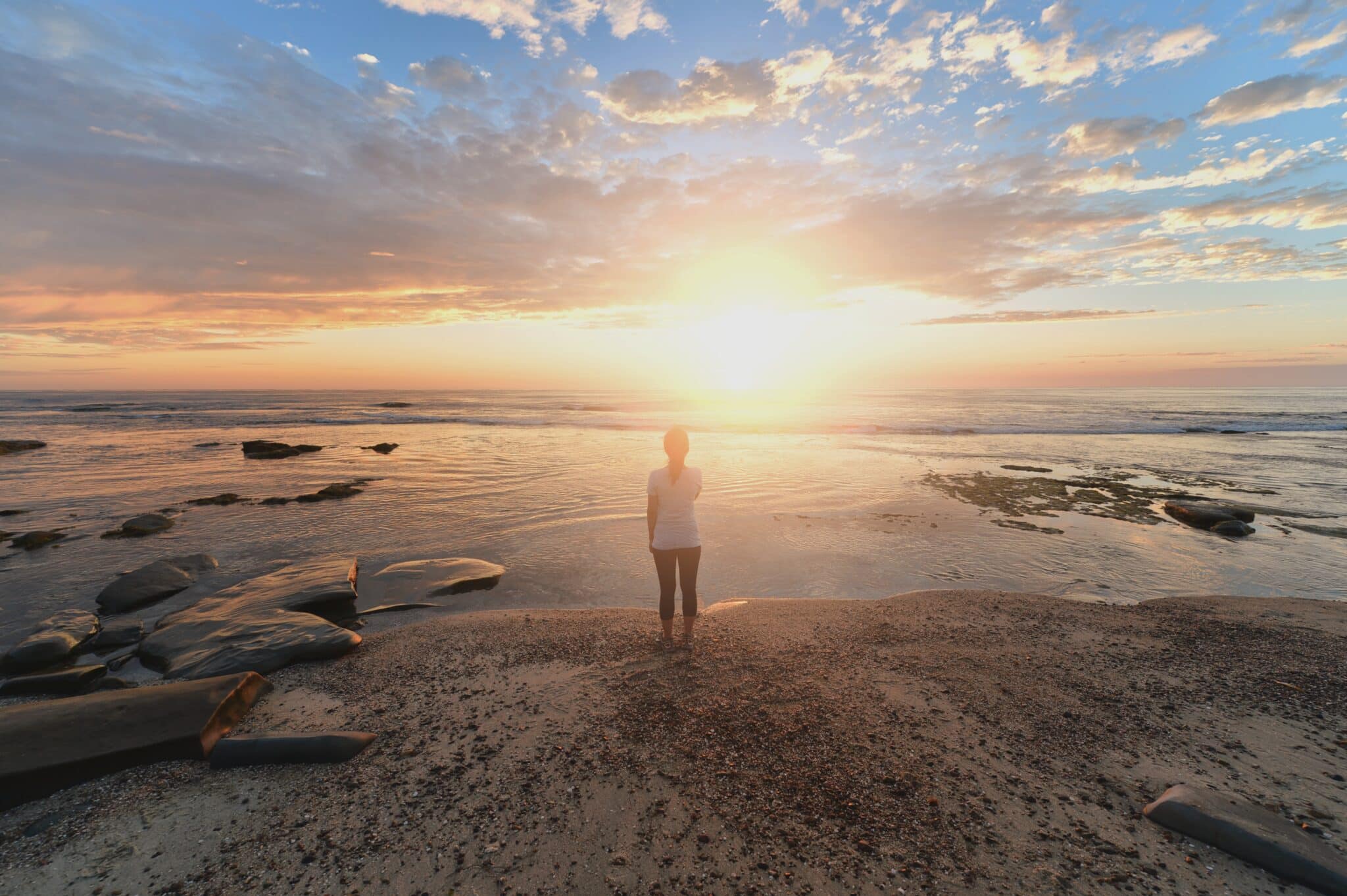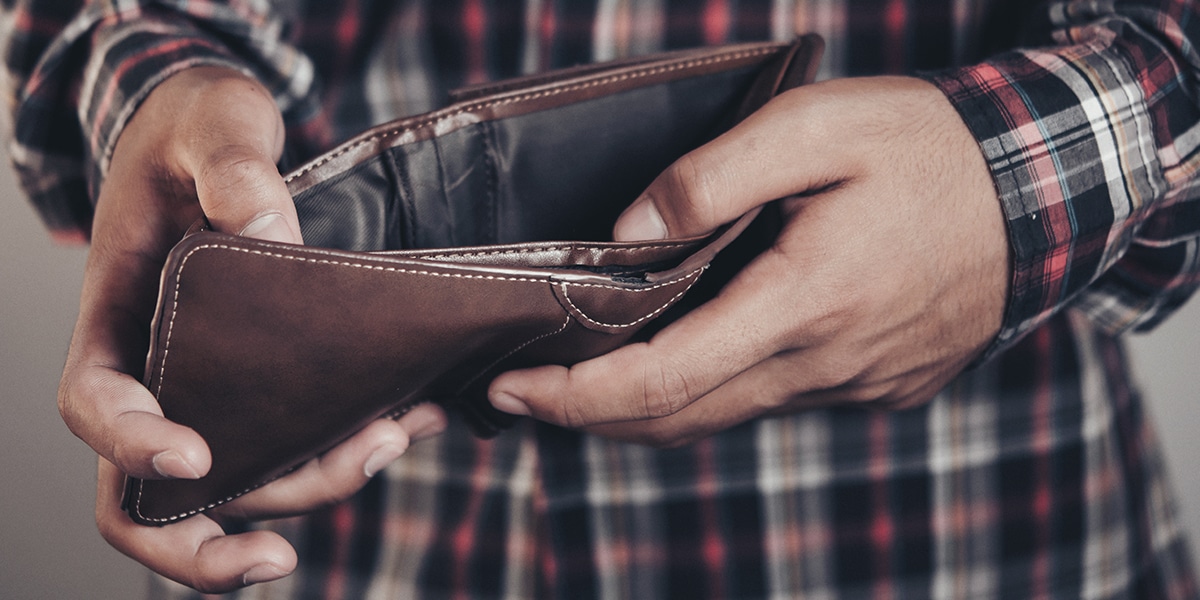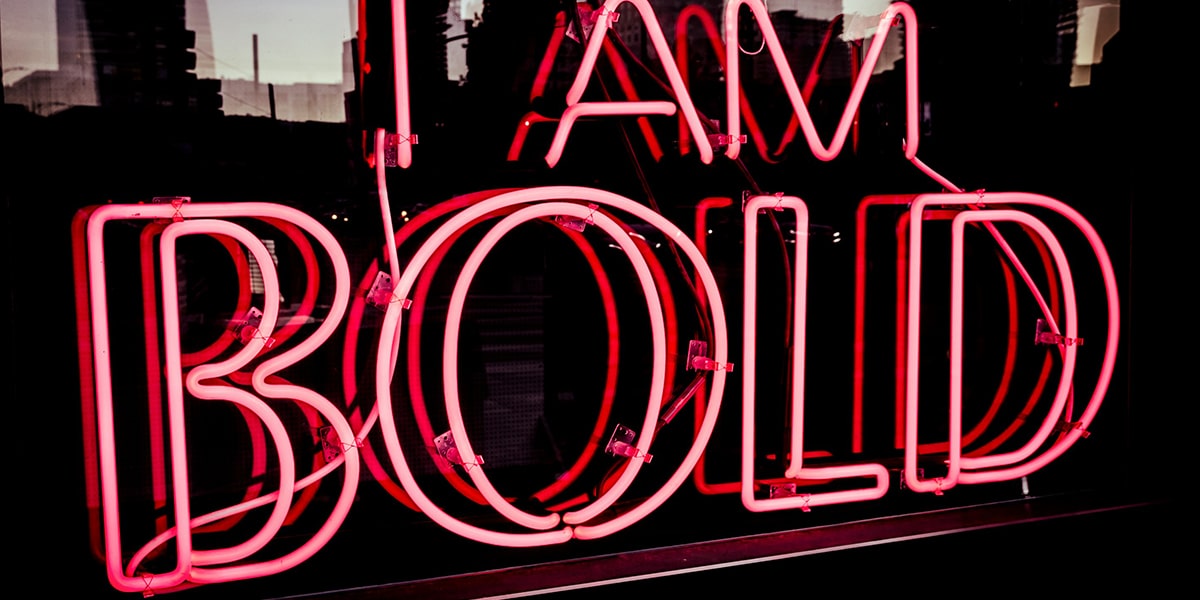The Franciscan Sisters of Mary (FSM) like to tell how their founder, Mother Mary Odilia Berger, made an impact in the streets of St. Louis in the early 1870s as she brought food and medical supplies to the sick and to the sisters in her religious congregation who were caring for them. Passersby noticed the congregation’s charity and placed donations in Mother Odilia’s basket.
Today the sisters’ “basket ” consists of the assets they acquired while serving in health-care ministry, including SSM Health, one of the largest Catholic hospital systems in the United States. Now retired, they support themselves in large part through the financial returns they receive on investment of those assets. At the same time, by investing some of their assets in a new way in impact investments they’re directly helping to care for the environment and those collaborating in that care, especially the poor and marginalized.
Since 2012, the sisters have dedicated 15 percent of their investments to bringing broader solutions to social and environmental problems by providing businesses with seed capital to grow in a way that’s not always possible with a grant. In the process, the sisters are seeking market-rate returns, adjusted for risk.
What’s the Impact?
Socially responsible and faith-consistent investing in the United States originated in 19th-century Protestant communities that avoided investing in enterprises that profited from alcohol, tobacco, and gambling. In the 1980s, Catholics and Protestants pressured US corporations to end operations in South Africa to end the system of apartheid. Now, a growing number of Catholic institutional and individual investors especially millennials seek to use tools of capitalism to benefit the environment and social causes such as assisting the poor in other countries, yet they often expect market-rate financial returns on these investments.
Impact investing is defined as investments made in companies, organizations, and funds with the intention to generate social and environmental impact alongside a financial return, according to the Global Impact Investing Network (GIIN), a New York-based nonprofit dedicated to increasing the scale and effectiveness of impact investing. GIIN tracks 430 active impact investment funds worldwide. In 2017, a GIIN survey reported $114 billion (US dollars) in impact investing assets.
“Impact investing is growing across the board in the values-aligned space where it’s not purely on financial return, ” says Jake Barnett, institutional consultant for Graystone Consulting, an independent firm associated with Morgan Stanley. “More individuals and institutions are looking to align with their values. ”
Individual investors may soon have opportunities to make impact investment donations, which Pope Francis has encouraged as a way of doing good with assets.
The sisters don’t have the energy or strength to be doing active ministry anymore, but we can make a difference, and we use what we have to make an impact. “
The Holy Father spoke on the topic in his 2014 address at the conference promoted by the Pontifical Council for Justice and Peace on “Impact Investing for the Poor “: “Impact investors are those who are conscious of the existence of serious unjust situations, instances of profound social inequality, and unacceptable conditions of poverty affecting communities and entire peoples. . . . Investments of this sort are meant to have positive social repercussions on local communities, such as the creation of jobs, access to energy, training, and increased agricultural productivity. ”
The methods available for faith-consistent investing including screening out investments that don’t align with beliefs, as well as impact investing give Catholic investors a way to promote Gospel values with their assets, according to Father Seamus Finn, OMI, chief of faith-consistent investing for the Oblates of Mary Immaculate’s OIP Investment Trust, which manages assets for more than 200 Catholic institutions. He notes that the US Conference of Catholic Bishops has produced investing guidelines to help align investment decisions with Church teaching.
“Instead of just focusing on avoiding harm that I might do and evil that I might cooperate in, is there a way that I can make a positive contribution? Is there a way that I can put money into projects or into institutions or into funds that are actually trying to do good things? ” Father Finn says.
It is possible to have a sustainable impact on communities and the environment while still earning a good financial return, he says. OIP Investment Trust invests 1 percent of its portfolio, or $4 million, in six impact investment funds that earn market-rate returns while providing resources for the environment, job creation, and small farmers.
“At a quick glance [Catholics] have been less active in this space recognizing that this effort could indeed be really a part of our mission in the world, our witness to the Gospel, or to our belief in Jesus Christ, ” Father Finn adds.
Success Stories
The Franciscan Sisters of Mary have seen growth in their investment in M-KOPA, a Kenya-based seller of solar panels to rural East Africans, that has brought both a financial return for them and a measurable social return in improving the lives of East Africans and the environment.
M-KOPA offers customers a power source that is cleaner, more reliable, and more affordable than kerosene. When the sisters invested in the company in 2013, it had connected 30,000 homes to solar power; by May 2017, the number had risen to more than 500,000 homes, for a projected savings of $375 million over the next four years. The sisters complement their direct investment in M-KOPA with fund impact investments in which many investors’ assets are pooled to benefit a number of organizations or companies through direct investments.
“Our investment is translated not only into financial but also into the return that speaks to the human and ecological impact that’s been made, ” says Sister Susan Scholl, FSM, president of the congregation. “[The sisters] want to know what we’re doing is making a difference. ”
The Oblates of Mary Immaculate are dedicated to peace and justice, not only in their 68 mission centers around the world but also in the management of their investment portfolio, according to Father Finn, who also is a consultant to the Oblates’ Office of Justice and Peace and Integrity of Creation. The order manages assets for Catholic institutions that include those of small dioceses in developing countries where the Oblates serve, along with religious orders and others.
Since the trust was established in 1991, Father Finn and OIP Investment Trust’s management team have screened out companies and funds whose practices are inconsistent with Catholic teaching and have been involved in shareholder dialogue in companies. They began learning about having a positive impact through investing 15 years ago.
“It’s a new coat people are trying on, ” he says. “You can find every group trying to figure out how to put it together in a way that’s reflective or well aligned with the mission of a diocese or institution. ”
Another Catholic organization that is trying on this “new coat ” of impact investing is Catholic Relief Services (CRS), which carries out the commitment of the US bishops to assist the poor and vulnerable internationally.
In 2016, CRS made its first program impact investment to stimulate growth in a company in Madagascar, an island country off the east coast of Africa. Its $500,000 investment in Lafaza a producer of organic, sustainable vanilla products that works with small local farmers served as seed capital. CRS has already helped the company secure another $4 million in loans, enabling it to buy more from local farmers, says Beth Collins, CRS’ impact investing director.
CRS devotes 5 percent of its reserves to established impact funds while also committing unrestricted resources to make mission-aligned investments in enterprises such as Lafaza, Collins says. Those funds enabled Lafaza to attract more capital, an opportunity the company would not have had from a grant, she says. Lafaza is paying back the loan, and the CRS funds will be invested in another company to make it more sustainable possibly one that provides clean water access in Central America.
Impact investments represent a new tool CRS is using to support the critical next level of development of small businesses in emerging countries, Collins adds. CRS will continue to offer grants and other financial support to organizations in these countries. “I will define success if we can even influence the sector and ourselves to invest closer to the bottom of the pyramid, ” she says. Financial returns from impact investments will be reinvested back into future investment opportunities.
More than Money
The Franciscan Sisters of Mary are seeking a market-rate, risk-adjusted return on their M-KOPA investment, but they’ve already seen both an environmental and a social return, says John O’Shaughnessy, FSM chief executive officer and CFO. Part of the risk associated with the investment was due to instability of the Kenyan currency, he says. M-KOPA has returned the FSM assets.
While financial returns on the sisters’ impact investments vary, they are seeking an overall market rate on all their impact investments when results are available, says O’Shaughnessy, founder of the Catholic Impact Investing Collaborative (CIIC). This group was established in 2014 to share stories, build relationships, and connect Catholic impact investors. CIIC has about 50 participants from Catholic institutions and financial service organizations.
Screening out morally unacceptable companies when investing is another way to approach faith-consistent investing. Ave Maria Mutual Funds consist of five diverse funds that do not contain investments in companies that promote or support activities contrary to the core moral teachings of the Catholic Church, especially on abortion, embryonic stem cell research, Planned Parenthood, and the distribution or production of pornography, says George Schwartz, chairman and CEO of Plymouth, Michigan-based Schwartz Investment Counsel, Inc., which serves as investment adviser for Ave Maria Mutual Funds.
“Our morally responsible view encompasses [that,] when you own stock in a company, you’re [an] owner of the company. As an owner, our shareholders don’t want their money going to these offensive abortion [or anti-family] practices, ” he says.
At the same time, Schwartz adds, “We are not willing to sacrifice good returns for moral beliefs or vice versa. ”
Getting Started
However individual investors approach faith-consistent investing, they have options, though some impact investments are better suited for larger investors because assets must be invested for longer periods, Graystone Consulting’s Barnett says. Individual investors interested in impact investing are encouraged to work with a financial adviser who can research funds. Materials for gaining economic literacy are available online, including Morgan Stanley’s “Catholic Values Investing Primer, ” available on its website.
Investors need to determine what portion of their assets they want to place in impact investments and the level of risk they can accept. Investments in newer impact funds that lack established track records may carry a higher risk profile, Father Finn says.
“I think two of the challenges that anybody has whether an individual or institution are when you have a sum of money, whether $5,000 or $500 million, you’re always deciding how much return do I need and how much risk can I take and still be responsible for whatever this money is for, ” he says.
CRS is developing an impact investment fund for individual donors that it plans to introduce within the next year for agriculture-related investments, Collins says. “In particular, my hope is that we attract individual philanthropic dollars that we invest in businesses, and that money keeps working for itself. ”
Also, the Catholic Community Foundation of the St. Paul-Minneapolis Archdiocese is considering offering its donors an impact investment fund, says Mike Ricci, professional outreach and investments director for the foundation.
“We know that our partners and donors have a heart for making an impact with their philanthropy, and we believe aligning capital with causes makes sense for all involved, ” he says. “Our investment committee continues to research and discuss investment opportunities that highlight our Catholic mission in a way that also ensures good stewardship. ”
Making a Difference
As Mother Odilia used her basket almost 150 years ago to help the sick, increasing numbers of Catholics today are using impact investing to help those in need and the environment. Through impact investing they can have a tremendous impact on the world, and also find more congruency between their own prayer and actions, Father Finn says.
For the Franciscan Sisters of Mary, it’s less about money than about using what they have to make a difference, Sister Scholl says. “The sisters don’t have the energy or strength to be out there doing [active ministry] anymore, but we can make a difference, and we use what we have to make an impact. ”








